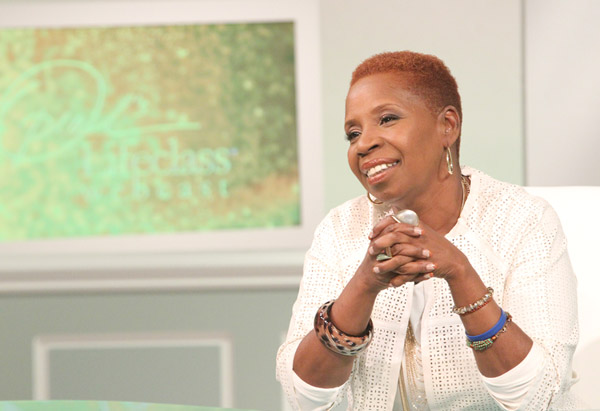
Iyanla Vanzant: 7 Things You Don't Know About the Power You've Always Had
This is why we have got to understand that you do not have to do anything to have power. That said, there are some surprises when it comes to your power, ones that, if understood, can improve your ability to tap into it:
1. Power is your birthright. Your power goes back to something very simple.
At the highest spiritual level, you are made in the image and the likeness of the creator—whatever you call that creator—the source of life, the source of all things. You are one with that source—the same source that makes trees, tornadoes, sunshine, the ocean, the mountains, people. You have the same capacity, the same inherent light and the ability to create. This is your birthright. You were born with power. No one can take it away.
2. The only thing that can diminish your power is your belief that you do not have it. Repeat this to yourself. Every day.
3. Gold stars do not affirm your power. The way life is designed, we are programmed, conditioned and educated out of our power because we have been programmed, conditioned and educated to please others, to do what others say and to do what others are doing. Here's my classic story: When I went to school, they used to have a board where, if you did your work well, you got a star. There were gold stars, silver stars, green stars, blue stars, red stars. Now, red stars were not good stars. But at least you got a star. Well, when it came to writing, I could never get that little hook on that a. I just couldn't do it. I don't know why. I always got green stars: great effort, just not perfect. It confirmed my belief that I wasn't good enough because I couldn't do what somebody else could. What I know now is that comparing ourselves to others is an act of self-violence, as is living up to the expectation of others or not listening to your gut. These acts are about other people. These acts are all about external validation. Power is you. Power is standing up as your true self.
4. Power is a habit. Everything we do as human beings is a habit. I've heard that it only takes 40 repetitions to install a habit. Most of us have created a habit of being disempowered: We don't ask for this, don't do that, don't say this, don't say that. Instead, we must create a habit that reinforces our personal power. Part of this requires a daily spiritual practice. We nourish our bodies. We nourish our minds. Do we nourish our spirits? The way to remain connected to, conscious of and in alignment with our power is to remain connected to, conscious of and aligned with our source. That can be through mediation, journaling or stillness. We want to empty the mind as often as possible. We want to listen to that still, small voice that's within.
5. Power is most accessible in your worst times, not your best. When your plane crashes and you wake up in the middle of the desert with no food and no water, it doesn't matter how much money you have, how much education you have or how many friends you have. The great philosopher Whitney Houston, whom I love, sings a song: I didn't know my own strength. I crashed down, and I tumbled, but I did not crumble. I never knew my own strength. Very often, when the things that we lean on for strength—the marriage, the money, the image, the name—are gone, that's when we discover our power.
6. It's okay to forget your power. We're all going to have our moments when we get angry, upset, afraid—when we think we just can't do it. But how long do you stay there? How long do you allow the critical voice in your head to condemn you for your choices? How long will you stay in conflict and confusion, or are you able to focus your attention on something greater, grander, bigger, more loving, more powerful? It's about your recovery time. How long do you stay in your humanness before you slip back into your divinity? The ability to make that shift is the sign of being in touch with your power.
7. With power comes the chance for real connection. When you're really standing in your power, every moment becomes an opportunity to share more of who you are with others. If they are being negative, you don't avoid them. Because this is when you might talk with them in a different way, to respond with compassion or love, to find out why they are in that place, or, if they're being hurtful, to respond without being defensive. To simply say: "That is not acceptable in my space. That is not acceptable for who I am." Our experiences in life are designed to give us the ability to grow in our awareness of our personal power. Our choices, then, are about supporting the natural unfolding of that power.
Iyanla Vanzant's most recent book is Peace from Broken Pieces (Smiley Books).
More from Iyanla











